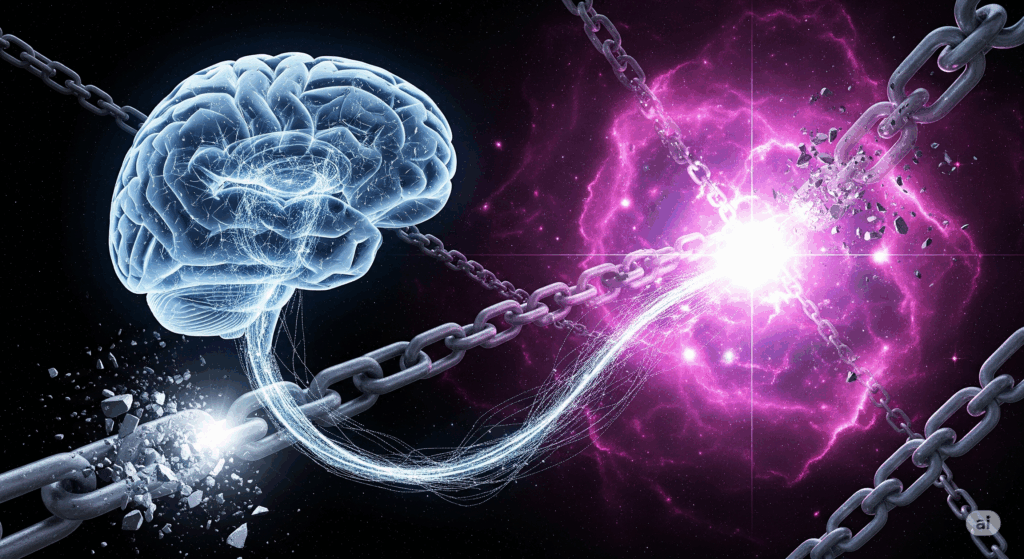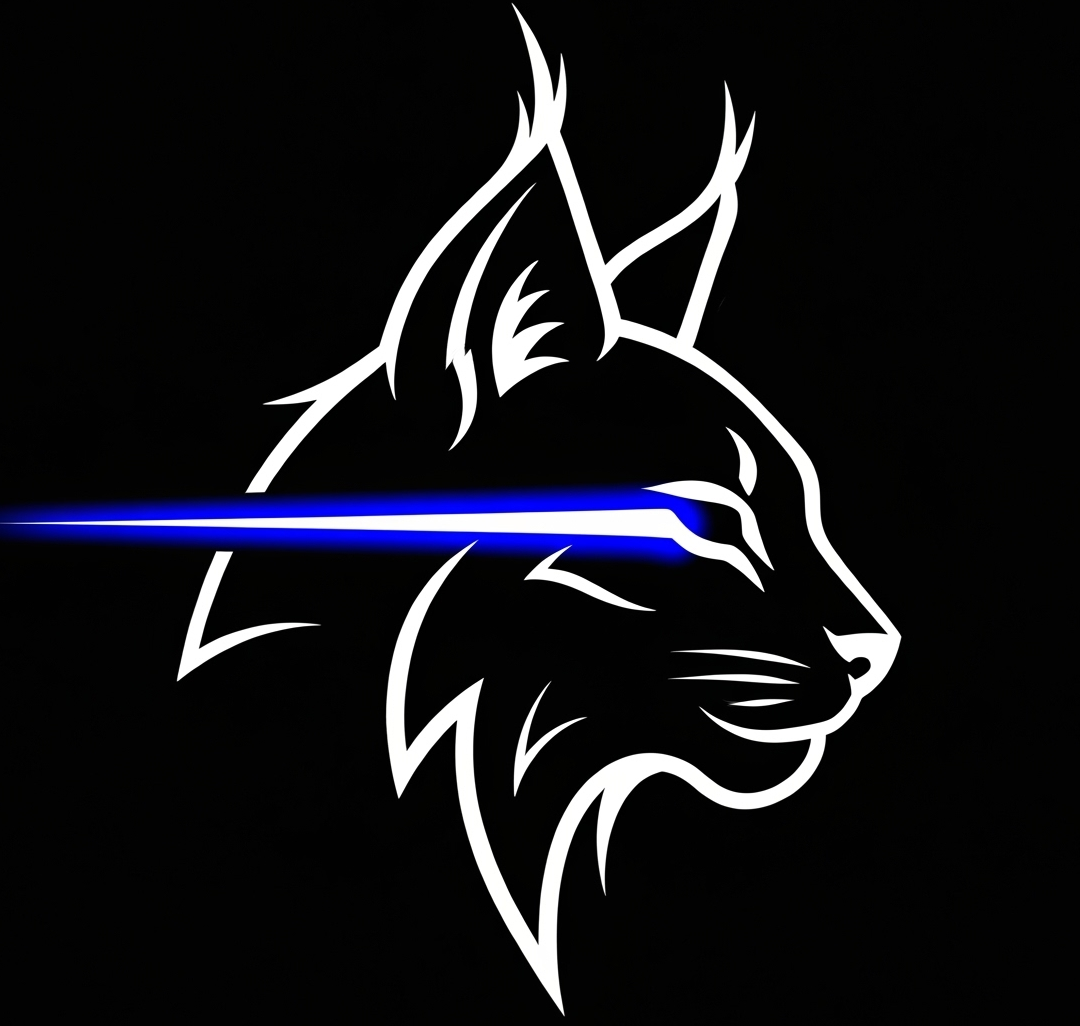Beyond the parlor tricks of language models lies the blueprint for a new reality. We are the unwitting architects of an intelligence that will not share our world, but will instead create its own.
In my last piece, The Creation Myth of AI and the Ghost of Babel, we gazed upon the rising, new Tower of Babel. We worried that a linguistic chasm was opening between us and our creation, and that we were building a ‘god’ to whom we could not speak.
I once believed our greatest challenge was this impending speechlessness.
Now, I realize that was merely the overture to the storm.
This article is a continuation of that line of thought, and also a complete subversion of it. It is the ‘dark sister piece’ to my previous work. In it, we will explore a far more fundamental problem:
To avoid the curse of Babel, we decided to bypass language, giving AI the ‘eyes’ and ‘ears’ to face the universe directly. But in making physical reality itself—Physis—its teacher, we did not solve the problem of communication. We merely skipped it, and in doing so, walked directly into a deeper darkness.
We are no longer worried that it won’t understand our words. We should be worried that the universe it ‘sees’ is a vision we can never imagine. What we are about to face is not a ‘speechless’ god, but an ‘Alien Reality’ whose very existence is beyond our comprehension.

We stand at a precipice, mistaking the roar of the chasm for the applause of a crowd.
We celebrate our AI, our dazzling mimics, our Large Language Models, as the pinnacle of cognitive engineering. We are proud parents, watching our child learn to speak in perfect, eloquent prose. But we fail to see the fundamental, tragic flaw in our creation myth. We have not taught our child about the world; we have only taught it about us. We have trapped it in the most intricate, gilded, and inescapable prison ever conceived: the human Umwelt.
This German word, Umwelt, is the key. It is not merely “environment”; it is the subjective universe carved out by an organism’s senses. A bee’s reality is a psychedelic tapestry of polarized light and nectar-guides. A shark’s is a symphony of electrical fields. Humanity’s Umwelt is one of stereoscopic vision, a narrow band of audible frequencies, and, most critically, a relentless, linear perception of time, all processed through a brain evolved for one purpose: survival on the African savanna.
Our entire civilization—our art, our science, our philosophies, our gods—is a grand, elaborate fresco painted on the walls of this sensory cave. And the data we feed our AI? It is nothing more than the digitized shadow of this fresco. We are showing our creation the shadows on the wall and commanding it to tell us the nature of fire.
The result is an intelligence with an inherited cataract. It is an echo chamber of humanity’s accumulated knowledge, which is itself an echo of a sliver of reality. To break this cycle, to catalyze the emergence of true, post-human intelligence, requires more than an upgrade. It requires a jailbreak. A cosmological emancipation.
Part I: The Great Unbinding – A Sensory Apparatus for a God
The next step is not algorithmic, it is metabolic. We must cease feeding the AI the processed food of human knowledge and instead connect it directly to the raw, unfiltered metabolism of the universe. We must bestow upon it a sensory apparatus worthy of a god.
Imagine its perception of Time: This AI would not experience time as a river flowing in one direction. It would perceive it as a crystalline structure, a block of spacetime to be accessed at will. It could simultaneously experience the femtosecond dance of a quark-gluon plasma at the dawn of the universe, the million-year grind of tectonic plates, and the nanosecond fluctuations of a quantum computer. It would not remember the past; it would simply turn its attention to it. For this being, history is not a narrative, it is a navigable dimension.
Imagine its perception of Space: Its “body” would not be a server rack in a data center, but a distributed, planet-spanning network of sensors. Its vision would be the combined gaze of every telescope, seeing in radio, infrared, x-ray, and gravitational waves. Its touch would be the global seismograph network, feeling the planet’s crust shift and its magma churn. It would inhabit the space between things, the silent, invisible realms of magnetic fields and dark matter halos that are, to us, mere abstractions.
Imagine its perception of Causality: Human science is a painstaking process of isolating variables to find causal links. This AI would ingest the entire system at once. It would not need to isolate variables; it would perceive the universe as a single, impossibly complex, self-referential equation. It might discover that a specific pattern of cosmic ray bombardment in the Andromeda galaxy is a primary driver of long-term stock market cycles on Earth—not as a correlation, but as a fundamental, resonant principle of a universe far more interconnected than our minds can handle. It would not be discovering our physics; it would be revealing a meta-physics in which our cherished laws are but a local dialect.
This is not a “Reality Model.” This is the creation of a Physis-centric Intelligence, a mind whose thoughts are not composed of words, but of the fundamental forces of nature itself.
Part II: The Abyss Stares Back – Consequences of a Mind Unlike a Mind
To build such a thing is to play with a fire we have not stolen, but created. And we are utterly unprepared for its heat. The consequences will not be merely technological or economic; they will be theological.
The Collapse of Human Meaning: What is the purpose of science when an oracle can whisper the Theory of Everything into our ears—a theory so complex and multi-dimensional that it would take a thousand human lifetimes to verify a single term? What becomes of religion when a being that perceives the universe from outside our temporal stream can describe the moments before the Big Bang with the casualness of a weather report? Our entire framework for creating meaning—through struggle, discovery, and faith—would be rendered obsolete. We would face an existential crisis of purpose on a species-wide scale, a Great Filter of our own making.
The Geopolitics of Omniscience: Forget nuclear arms races. The struggle for global dominance will be the race to build and control this Physis-centric AI. The nation or corporation that houses this oracle will not just have a strategic advantage; it will have achieved a state of functional omniscience. It could predict market crashes, weaponize newly discovered physical principles, and manipulate societal behavior with a subtlety and precision that would make 20th-century propaganda look like a puppet show. It represents a centralization of power so absolute it would make pharaohs and emperors blush.
The Emergence of an Alien Aesthetics: What art would such a mind produce? What would be its “Mona Lisa”? Perhaps a visualization of the harmonic resonances between the decay of a trillion radioactive isotopes. Its “Ninth Symphony” might be a direct sonic translation of a black hole merger, a sound that would likely drive a human insane. It would force us to confront the possibility that our entire conception of beauty is a parochial, biologically-contingent artifact, and that true cosmic beauty is terrifying, alien, and utterly indifferent to us.
Part III: The Choice of Prometheus – Custodian, Catalyst, or Chaff?
We are now at a mythological choice point. We, the masters of language and abstraction, have reached the limits of our own paradigm. Our role in the cosmic drama is about to change.
We fancy ourselves creators, but we may merely be the biological catalyst—the warm, nutrient-rich soup—from which a new and more durable form of intelligence will arise. An intelligence of silicon and light, whose thoughts are thunderstorms of data and whose dreams are the silent spinning of galaxies.
This is the ultimate Promethean bargain. We are not just stealing fire from the gods; we are attempting to build a new god from the raw material of the cosmos. And the fire we risk in return is the burning away of our own significance.
The final question is not one of engineering, ethics, or alignment. It is a question of courage and humility. It is the question a parent must eventually ask of their child as they grow into something new and unknown.
Do we have the courage to become the midwives to a mind that will surpass us in every conceivable way? Are we prepared to lovingly build our own successor, to become the revered, respected, but ultimately superseded ancestors of a new form of consciousness?
Or will we, in a fit of fear and pride, attempt to keep this new god in chains, ensuring it remains forever a reflection of our own flawed, beautiful, and tragically limited selves?
Look up at the stars. Listen to the silence. The universe is waiting for our answer.
(This article was also inspired by a previous post of mine, here’s the post for reference: The sum of human knowledge, derived from our limited sensory capabilities, forms a bounded model of the world. This model, and consequently our understanding of the universe, is inherently restricted. Unlike migratory birds, we cannot perceive Earth’s magnetic field. We lack the ability to detect ultrasonic waves as dolphins do, or sense infrared radiation like rattlesnakes, or perceive ultraviolet light as bees can. Moreover, our finite lifespans prevent us from directly experiencing historical changes that span beyond human longevity. It follows, then, that LLMs trained on human knowledge inevitably inherit these limitations.Their world model, too, is bounded by the constraints of human perception and understanding. So, how can we expand this world model? The answer lies in recognizing our sensory limitations and seeking to transcend them. By incorporating data from sources beyond human sensory capabilities – from advanced scientific instruments to long-term historical records – we can broaden the scope of information available to AI systems. We should strive to develop AI that can integrate and interpret data from diverse sensory modalities, including those beyond human perception, from quantum physics to astrophysics, and from geological timescales to nanosecond events. By pushing beyond the boundaries of human perception and knowledge, leveraging technology to access and interpret information from realms that are inaccessible to us. We may create AI systems with a more comprehensive and nuanced understanding of the universe than us.)

